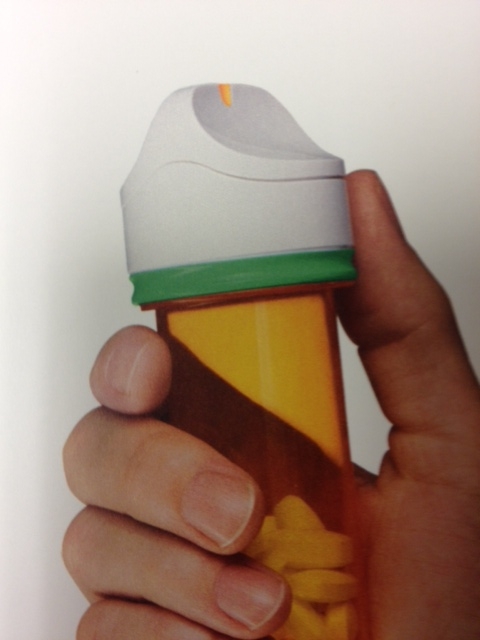January 3rd, 2012 by DrWes in Opinion, True Stories
No Comments »

The call never should have been made.
It broke every proscribed rule.
After all, I was not on call. Thanks to the wonders of computer technology, it was very clear that I was being covered by my colleague. And yet, despite this, it came.
“Dr. Fisher, I’m so sorry for calling you at home, but I received a call from Ms. X, the wife of your patient Mr. Y. who said she really needed to speak to you about her husband… she seemed quite concerned and insisted I call you…. I told her I’d see if I could reach you at home… I’m so sorry, but it sounded urgent… I have her number, could I connect you?” Read more »
*This blog post was originally published at Dr. Wes*
December 31st, 2011 by DrWes in Health Policy, Opinion
1 Comment »

It is tough playing man-to-man when coaches on the sideline keep insisting your team plays zone.
Such is it with health care.
For doctors, the man-to-man defense never ends. Stay with them. Glue to them. Move with them. Run with them. Defend against the bounce pass, or the dribble to avoid the admission. Hands up! Watch their waist, ignore the head fake. You shift your coverage to accommodate their needs. One on one, mana-a-mano.
But for the business of medicine, it’s all about the zone. Defend the admission basket against as many people as possible with the least number of defenders. Stay in your position. Work it 2-1-2, 2-3, or if you’re really adventurous: 1-2-2. Stick to Read more »
*This blog post was originally published at Dr. Wes*
December 25th, 2011 by DrWes in News, Opinion
No Comments »


 Just saw this advertised for patients taking Multaq (dronedarone): interactive pill bottle caps called “GlowCaps:”
Just saw this advertised for patients taking Multaq (dronedarone): interactive pill bottle caps called “GlowCaps:”
GlowCapsTM is a bottle with built-in wireless communication… When you receive your GlowCapTM, you program it with your schedule. It will then remind you when it’s time to take Multaq by lighting up, playing a melody, or calling your home phone. If you and your physician choose, your GlowCapTM can also send weekly reminder e-mail to you and a caregiver, send reports to your doctor, and refills can be initiated with the push of a button, if you provide a phone number when registering.
Okay. That’s pretty cool.
How It Works Read more »
*This blog post was originally published at Dr. Wes*
December 20th, 2011 by DrWes in Opinion
No Comments »

“How are you feeling, Ms. Jones?”
“Fine.”
“Have you been more short of breath lately?”
“Not really, just when I exercise.”
“How much exercise?”
“I dunno. But after I go to the mailbox and walk back up to the house, I’ve got to stop now where before I didn’t.”
Exertional dyspnea. It conjures up a large differential of potential cardiovascular or pulmonary causes. And as the above commonly-encountered doctor-patient conversation demonstrates, the problem is a dynamic one: at rest things are often fine, on exertion or with recumbency less so.
Now imagine that the doctor then sees elevated neck veins, hears rales in the lower lung fields, and sees swollen ankles on their patient. Heart failure, right? Read more »
*This blog post was originally published at Dr. Wes*
December 9th, 2011 by DrWes in Health Policy, Opinion
1 Comment »

With the announcement that the Center for Medicare and Medicaid Services (CMS) will begin auditing 100% of expensive cardiovascular and orthopedic procedures in certain states earlier this week, we see their final transformation from the beneficent health care funding bosom for seniors to health care rationer:
The Center for Medicare and Medicaid Services will require pre-payment audits on hospital stays for cardiac care, joint replacements and spinal fusion procedures, according to the American College of Cardiology in a letter to members. Shares in both industries fell with Tenet Healthcare Corp., the Dallas- based hospital operator, plunging 11 percent to $4.18, the most among Standard & Poor’s 500 stocks. Medtronic Inc., the largest U.S. maker of heart devices, dropped 6 percent to $34.61.
The program means hospitals won’t receive payment for stays that involve cardiac care or orthopedic treatment until auditors have examined the patient records and confirmed that the care was appropriate, Jerold Saef, the reimbursement chair for the Florida chapter of the American College of Cardiology, wrote in a Nov. 21 letter to members. The review process is expected to take 30 days to 60 days, beginning January 1, Saef said.
This is not at all unexpected. In fact, Read more »
*This blog post was originally published at Dr. Wes*












